Upcoming Talks
Updated Soon
Previous Talks
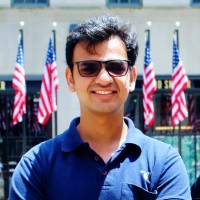
Dr. Rohan Chandra
University of Texas, Austin
Title: Towards Autonomous Driving in Dense, Heterogeneous, and Unstructures Environments Date: November 4, 2022
Abstract & Bio
Abstract: In this talk, I discuss many key problems in autonomous driving towards handling dense, heterogeneous, and unstructured traffic environments. Autonomous vehicles (AV) at present are restricted to operating on smooth and well-marked roads, in sparse traffic, and among well-behaved drivers. I present new techniques to perceive, predict, and navigate among human drivers in traffic that is significantly denser in terms of number of traffic-agents, more heterogeneous in terms of size and dynamic constraints of traffic agents, and where many drivers may not follow the traffic rules and have varying behaviors. My talk is structured along three themes—perception, driver behavior modeling, and planning. More specifically, I will talk about:
1. Improved tracking and trajectory prediction algorithms for dense and heterogeneous traffic using a combination of computer vision and deep learning techniques.
2. A novel behavior modeling approach using graph theory for characterizing human drivers as aggressive or conservative from their trajectories.
3. Behavior-driven planning and navigation algorithms in mixed and unstructured traffic environments using game theory and risk-aware planning.
Finally, I will conclude by discussing the future implications and broader applications of these ideas in the context of social robotics where robots are deployed in warehouses, restaurants, hospitals, and inside homes to assist human beings.
Bio: Rohan Chandra is currently a postdoctoral researcher at the University of Texas, Austin, hosted by Dr. Joydeep Biswas. Rohan obtained his B.Tech from the Delhi Technological University, New Delhi in 2016 and completed his MS and PhD in 2018 and 2022 from the University of Maryland advised by Dr. Dinesh Manocha. His doctoral thesis focused on autonomous driving in dense, heterogeneous, and unstructured traffic environments. He is a UMD’20 Future Faculty Fellow, RSS’22 Pioneer, and a recipient of a UMD’20 summer research fellowship. He has published his work in top computer vision and robotics conferences (CVPR, ICRA, IROS) and has interned at NVIDIA in the autonomous driving team. He has served on the program committee of leading conferences in robotics, computer vision, artificial intelligence, and machine learning. He has given invited talks at academic seminars and workshops and has served on robotics panels alongside distinguished faculty. Outside of research, Rohan enjoys playing board games, teaching, and mentoring younger students.
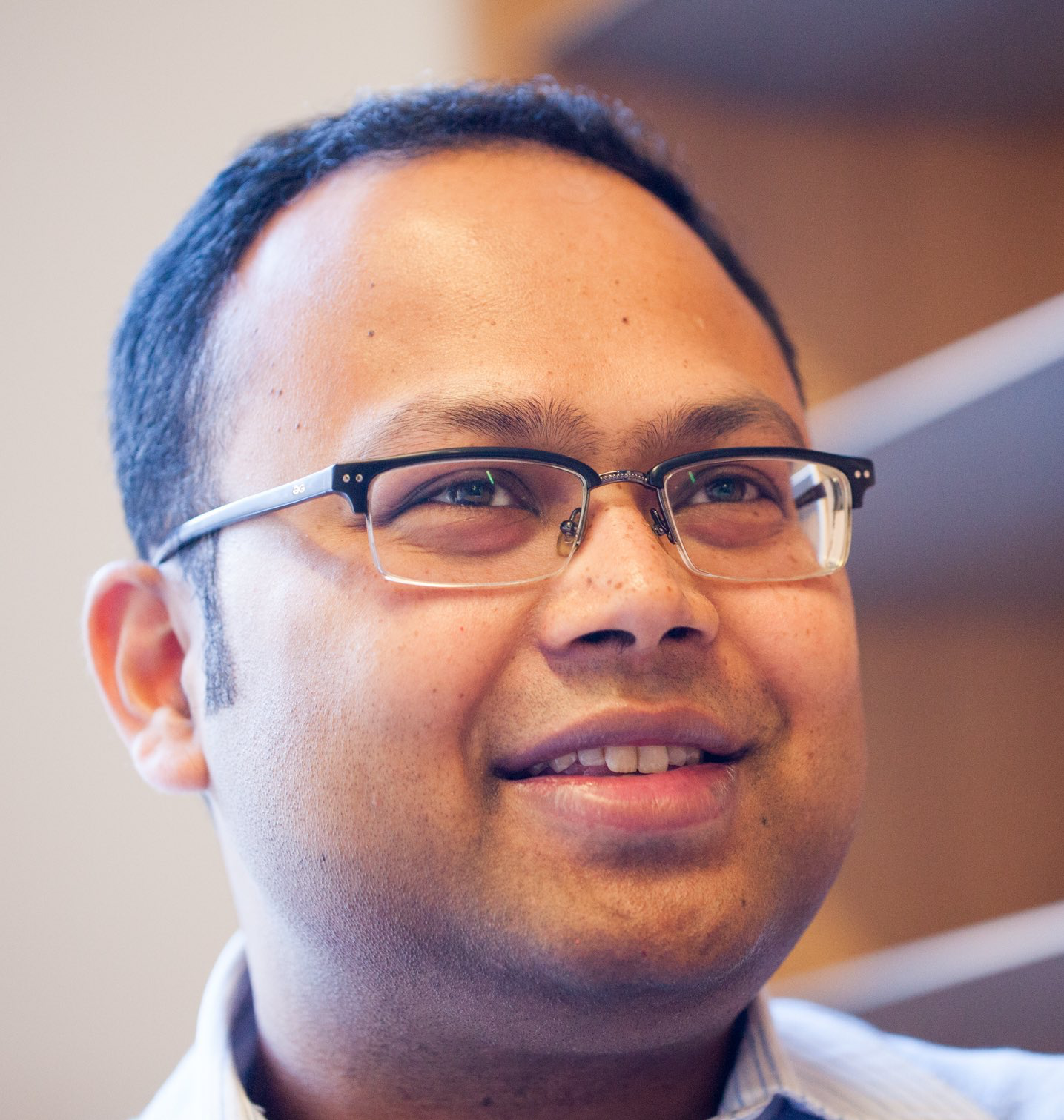
Dr. Suman Jana
Columbia University
Title: Scalable, Accurate, Robust Binary Analysis with Transfer Learning Date: September 22, 2022
Abstract & Bio
Abstract: Binary program analysis is a fundamental building block for a broad spectrum of security tasks. Essentially, binary analysis encapsulates a diverse set of tasks that aim to understand and analyze the behaviors/semantics of binary programs. Existing approaches often tackle each analysis task independently and heavily employ ad-hoc task-specific brittle heuristics. While recent ML-based approaches have shown some early promise, they too tend to learn spurious features and overfit to specific tasks without understanding the underlying program semantics. In this talk, he will describe some of our recent projects that use transfer learning on both binary code and execution traces to learn binary program semantics and transfer the learned knowledge for different binary analysis tasks. Their key observation is that by designing pretraining tasks that can learn binary code semantics, they can drastically boost the performance of binary analysis tasks. Their pretraining tasks are fully self-supervised -- they do not need expensive labeling effort and therefore can easily generalize across different architectures, operating systems, compilers, optimizations, and obfuscations. Extensive experiments show that the approach drastically improves the performance of popular tasks like binary disassembly, matching semantically similar binary functions, and recovering types from binary. Bio: Suman Jana is an associate professor in the department of computer science and the data science institute at Columbia University. His primary research interest is at the intersection of computer security and machine learning. His research has received six best paper awards, a CACM research highlight, a Google faculty fellowship, a JPMorgan Chase Faculty Research Award, an NSF CAREER award, and an ARO young investigator award.
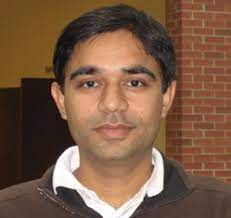
Prof. Raman Arora
Johns Hopkins University
Title: Guaranteed adversarially robust training of neural networks Date: June 21, 2022
Abstract & Bio
Abstract: Despite the tremendous success of deep learning, neural network-based models are highly susceptible to small, imperceptible, adversarial perturbations of data at test time. Such vulnerability to adversarial examples imposes severe limitations on deploying neural networks-based systems, especially in critical, high-stakes applications such as autonomous driving, where safe and reliable operation is paramount. In this talk, we seek to understand why trained neural networks classify clean data with high accuracy yet remain extraordinarily fragile due to strategically induced perturbations. Further, we give a first-of-its-kind computational guarantee for adversarial training, which formulates robust learning as a min-max optimization problem and has emerged as a principled approach to training models that are robust to adversarial examples. Bio: Raman Arora is an assistant professor in the Department of Computer Science at Johns Hopkins University where he is also affiliated with the Mathematical Institute for Data Science (MINDS), the Center for Language and Speech Processing (CLSP), and the Institute for Data-Intensive Engineering and Science (IDIES). Prior to joining Johns Hopkins, Raman was a Research Assistant Professor at Toyota Technological Institute at Chicago (TTIC), a visiting researcher at Microsoft Research, Redmond, and a research associate at the University of Washington, Seattle. He received his Ph.D. from the University of Wisconsin-Madison. Raman’s research interests are in machine learning, online learning, robustness, and privacy. He received an NSF CAREER award in 2019. .
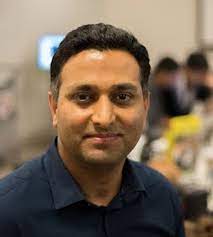
Prof. Ramesh Raskar
MIT
Title: Making Invisible Visible with Data, ML and Devices Date: May 4, 2022
Abstract & Bio
Abstract: A new class of digital health platforms and a data-transparent health ecosystem can provide tremendous cost, efficacy and health benefits to the society by enabling informatics-powered actionable foresights. The presentation covers research from patient-scale to population-scale in all 3 domains, physical: diagnostic devices and imaging, computational: automated and private machine learning and health markets, and global: social networks, environmental sensors and geospatial analysis. At the physical level, ubiquity of devices can transform the continuous, proactive data driven health solutions. At the computational level, the next generation of ‘decentralized informatics’ can tackle the false dichotomy between data utility and data confidentiality and overcome the data silos. At the global level, the world-scale approach can help us enhance EHR, learning systems and population studies to a dynamic health grid and a health OS. Bio: Ramesh Raskar is an Associate Professor at MIT Media Lab and directs the Camera Culture research group. His focus is on AI and Imaging for health and sustainability. These interfaces span research in physical (e.g., sensors, health-tech), digital (e.g., automating machine learning) and global (e.g., geomaps, autonomous mobility) domains. He received the Lemelson Award (2016), ACM SIGGRAPH Achievement Award (2017), DARPA Young Faculty Award (2009), Alfred P. Sloan Research Fellowship (2009), TR100 Award from MIT Technology Review (2004) and Global Indus Technovator Award (2003). He has worked on special research projects at Google [X], Apple and Facebook and co-founded/advised several companies.

Prof. Moshe Y. Vardi
Rice University
Title: Machine Learning and Logic: Fast and Slow Thinking Date: March 14, 2022
Abstract & Bio
Abstract: Computer science seems to be undergoing a paradigm shift. Much of earlier research was conducted in the framework of well-understood formal models. In contrast, some of the hottest trends today shun formal models and rely on massive data sets and machine learning. A canonical example of this change is the shift in AI from logic programming to deep learning. I will argue that the correct metaphor for this development is not paradigm shift, but paradigm expansion. Just as General Relativity augments Newtonian Mechanics, rather than replace it -- we went to the moon, after all, using Newtonian Mechanics -- data-driven computing augments model-driven computing. In the context of Artificial Intelligence, machine learning and logic correspond to the two modes of human thinking: fast thinking and slow thinking. The challenge today is to integrate the model-driven and data-driven paradigms. I will describe one approach to such an integration -- making logic more quantitative. Bio: Moshe Y. Vardi is University Professor and the George Distinguished Service Professor in Computational Engineering at Rice University. He is the recipient of several awards, including the ACM SIGACT Goedel Prize, the ACM Kanellakis Award, the ACM SIGMOD Codd Award, the Knuth Prize, the IEEE Computer Society Goode Award, and the EATCS Distinguished Achievements Award. He is the author and co-author of over 700 papers, as well as two books. He is a Guggenheim Fellows as well as fellow of several societies, and a member of several academies, including the US National Academy of Engineering and National Academy of Science. He holds seven honorary doctorates. He is a Senior Editor of the Communications of the ACM, the premier publication in computing.

Tanmoy Chakraborty
CSE, IIITD
Title: TransEvolve: A Tale of Transformer and Multi-particle Dynamical Systems Date: Feb 23, 2022
Abstract & Bio
Abstract: Is Transformer really a dynamical system? The underlying ordinary differential equation (ODE) formulation of the Transformer assumes the existence of time as a variable in the transformation maps realized by the attention and the feedforward layers. Instead of using depth-wise independent parametrization for each layer, we design temporal evolution schemes. Both the attention and feedforward layers are then time (depth) dependent maps with shared parametrization. It results in decreasing parameter size and complexity with improved performance. We call our model, TransEvolve, a multi-particle dynamical system to redesign the Transformer architecture. We experiment on several tasks: neural machine translation, whole-sequence classification, and long sequence analysis. TransEvolve outperforms the Transformer base model and its variants with significant speedup. Paper: https://arxiv.org/abs/2109.15142 (NeurIPS'21 Spotlight) Code: https://github.com/LCS2-IIITD/TransEvolve Bio: Tanmoy is an assistant professor of computer science and a Ramanujan Fellow at IIIT Delhi where he leads a research group, LCS2. He is also heading the Infosys Center for AI at IIIT Delhi. He broadly works in the areas of NLP and Graph Mining, with a major focus on building machine learning models for cyber-crime and cybersafety. He is also interested in designing lightweight and explainable models for language understanding and graph processing. He did his PhD from IIT Kharagpur in 2015 as a Google PhD scholar and worked at the University of Maryland, College Park as a postdoctoral scholar before joining IIITD in 2017. He has received several prestigious awards and fellowships including faculty awards from Google, Accenture, LinkedIn, early career award, and DAAD faculty fellowship. He has recently authored a textbook on social network analysis. More details: http://faculty.iiitd.ac.in/~tanmoy/
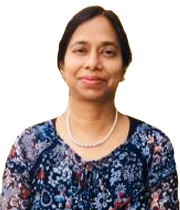
Anubha Gupta
Department of Electronics and Communication Engineering, IIITD
Title: AI in Blood Cancer Imaging Date: Jan 25, 2022
Abstract & Bio
Abstract: SBILab, IIIT-Delhi and AIIMS, New Delhi have been collaborating in the area of blood cancer imaging for the past 6 years. Over this duration, we have worked on two blood cancer types: B-ALL and Multiple Myeloma. We have also released four curated datasets publicly and also organized two medical imaging challenges in the International conferences. We have built deep learning based inhouse solutions for blood cancer diagnosis. In this talk, we will briefly discuss the problem statement, datasets, workflow, the data challenges, and the solutions proposed. Bio: Prof. Anubha Gupta graduated with a Ph.D. degree in Electrical Engineering from IIT Delhi in 2006. She did her bachelor's and master's in ECE from Delhi University in 1991 and 1997, respectively. She started her professional career with the position of Assistant Director at ALL India Radio (through Indian Engineering Services) in 1993 and worked there until Feb. 1999. In Feb. 1999, she joined Netaji Subhas Institute of Technology (NSIT), Dwarka, Delhi. She worked as Assistant Professor in the Computer Engineering Department at NSIT for eight years. From July 2011 to Dec. 2013, she worked as associate professor at IIIT Hyderabad. In Dec 2013, she joined IIIT Delhi, where she is currently working as a professor in the Department of Electronics and Communication Engineering. Apart from her engineering interests, Dr. Gupta is deeply interested in education policy issues. She did her second master's as a full time student from University of Maryland College Park, USA from 2008 to 2010. During this time, she worked as a project manager on a state policy related education project at the University System of Maryland, USA. On graduation, she worked as Director of Assessment at the Bowie State University, Maryland USA from Oct. 2010 to April 2011. She has authored/co-authored more than 100 technical papers in scientific journals and conferences. She has published research papers in both engineering and education. Her research interests include biomedical signal and image processing including fMRI, MRI, EEG, ECG signal processing, genomics signal processing in cancer research, Wavelets in deep learning, and signal processing for communication engineering. Prof. Gupta is a senior member of IEEE Signal processing Society and a member of IEEE Women in Engineering Society. She is Associate Editor of IEEE Access journal, Associate Editor of IEEE Signal Processing Magazine eNewsletter, and Chair, IEEE SPS Delhi Chapter.

Asha Subramanian
Founder and CEO, Semantic Web India Private Limited
Title: Understanding Semantic Web and its Applications
Date: December 20, 2021
Abstract & Bio
Abstract: Semantic Web Technologies is a knowledge representation and applications technique that represents the knowledge regarding the world in a simple machine readable and interpretable form. Semantic web is increasingly being used in building efficient Natural Language Processing algorithms, Search Engine optimization applications, providing context-aware content and much more. Standard ML and AI algorithms along with semantic web techniques form a lethal combination for intelligent feature selection and automation of domain inputs in solving business problems. This talk will introduce the Semantic Web & its relevance in the data science canvas today, the components of semantic web applications and its relation with core concepts of Mathematics and Graph Theory. This talk will also take the audience through some of the applications that Semantic Web India is currently working on, in the Public Data applications vertical and the Life Sciences & Healthcare domain.
Bio: Dr. Asha Subramanian holds a M. Stat (Masters in Statistics) from Indian Statistical Institute Calcutta and a PhD in Data Science from IIIT Bangalore. Her research interests include Knowledge Representation and Reasoning models, Semantic Web, Machine Learning and Graph Networks, particularly focusing on developing unique models that can bring all these technology domains together to better understand data and its context. Asha has a rich Information Technology industry background with over two decades of program management and delivery experience.
She is the founder and CEO of Semantic Web India Private Limited, that focusses mainly on Life Sciences & Genomics and Public Data Applications. The organization's core strength is building Semantic AI Solutions for Enterprise Data Integration and Knowledge Management & Discovery. Currently Incubated in AIC-CCMB (Atal Incubation Centre Centre for Cellular and Molecular Biology), her team is working on a unique SaaS based platform for analysis of large scale Genome Data for Variant Prioritization and Analysis to address rare mendelian genetic disorders using Semantic Intelligence Technologies.
Her organization recently entered into a collaboration with three premier academic institutions in India – IIT Madras, IISc and ISI to make available the much needed public health data on covid19 across India.
She is part of the Technical Advisory Group (TAG) constituted by NITI Aayog comprising technology, sector and data experts to provide overall technical guidance and approval of key features for the National Data and Analytics Platform (NDAP).
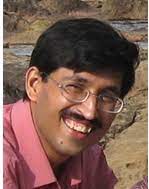
Arnab Bhattacharya
Professor, CSE, IIT, Kanpur
Talk Title: Towards Artificial Vikramaaditya: Can Machines Deliver and Explain Fair Judgments?
Date: November 24, 2021
Abstract & Bio
Abstract: Judiciary is one of the pillars of modern democratic systems and yet the legal system, its statutes, laws and language is one of the most notoriously complex realities in public life. The delay in delivering judgments adds to the resentment in common citizens. Natural language processing has a large scope in alleviating some of these concerns. Unfortunately, the court case documents in India, even for higher courts, is mostly unstructured and varies significantly from each other. In this talk, I will describe our ongoing efforts in creating datasets that can help the deep learning based natural language processing pipelines. In particular, we try to predict a judgment. While high accuracy in such classification tasks may be acceptable in a machine learning sense, a prediction has no value unless it can be explained in legal terms. Thus, in addition to predicting that an appellant will win/lose the case, it is more important to explain why she will win/lose. Needless to emphasize, fairness is a major concern in any such judgment prediction task. In more concrete terms, I will present two corpora and our experiences of running certain tasks on them. The first corpus is ILDC (Indian Legal Documents Corpus), built from 35000 Supreme Court of India cases written in English. The second one, HLDC (Hindi Legal Documents Corpus), consists of 9,00,000 bail documents from district courts of Uttar Pradesh, written in Hindi.
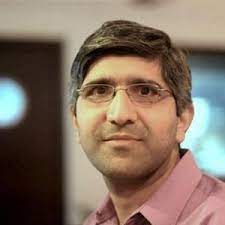
Zainul Charbiwala
Co-Founder and CTO, Tricog Health
Title: How We Built Machine Intelligence To Help Doctors Save Lives
Date: September 29, 2021
Abstract & Bio
Abstract: 7.2 million people die of heart disease every year. 50% of these lives can be saved if heart attacks can be diagnosed quickly and treatment coordinated within the golden hour. Diagnosing heart disease requires a simple test called an ECG, unfortunately, interpreting the ECG accurately requires a specialist. But, how do we put the skills of a cardiologist in every corner of the globe ? How do we equip a GP in India or a nurse in sub-Saharan Africa or a medical attendant in Buenos Aires to be able to help diagnose a heart attack and start treatment? Tricog provides real time cardiac diagnosis amplifying the work of few doctors to reach out to all patients worldwide. We’ve built specialised AI powered algorithms to help our resident doctors with the diagnosis, which is then sent back to the remote centre, thus enabling a doctor or a health care worker in any remote location to diagnose and initiate treatment for heart disease, thus saving lives. This talk will discuss how we’ve built our systems to bridge the divide between machine intelligence and human expertise so that they work together as a team to provide this “Cardiology as a Service” at scale, accurately and quickly. Bio: Zainul Charbiwala is a co-founder and the CTO at Tricog Health. He’s been building embedded systems and developing software for over 15 years. He is interested in the overlap of connected devices and machine intelligence to revolutionise and reinvent healthcare. He holds a Master’s degree from IIT Bombay and a PhD from University of California, Los Angeles. Before Tricog, Zainul was a Research Staff Member and Research Manager at IBM Research, India. Zainul has 7 patents and over 30 refereed publications.

Sushmita Mitra
Professor, Machine Intelligence Unit,
ISI Kolkata
Talk Title: Intelligent Biomedical Image Analysis
Date: August 25, 2021
Abstract & Bio
Abstract: Medical imaging inherently entails imperfection, and is therefore an appropriate domain for involving computational intelligence. We begin by describing an automated and fast detection for brain tumors in MRI, and its efficient segmentation. Visual saliency is utilized for a fast localization and detection of the tumor. Use of just a single user-provided seed for an efficient delineation of the GBM tumor is also elaborated. This is followed by the employment of deep learning in the context of detection, segmentation and survival prediction in gliomas. Finally an application to Covid lung is outlined.
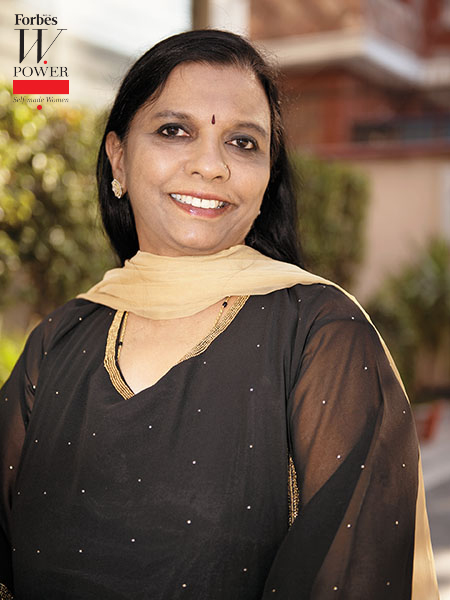
Geetha Manjunath
CEO and Co-founder,
NIRAMAI Health Analytix
Talk Title: Machine Learning for Healthcare - Cancer to Covid
Date: July 28, 2021
Abstract & Bio
Bio: Geetha is the Founder and CEO of Niramai Health Analytix, which is developing a novel solution for detecting early stage breast cancer using machine learning. Geetha has over 25 years of research expertise in IT industry and has proposed and lead multiple research projects in Artificial intelligence, crowd sourcing, cloud computing, semantic web, mobile and distributed computing. Her research in the above areas has resulted in innovative prototypes, patents, publications, new products and some national and international recognition. Specialties: Artificial intelligence, Machine learning, Computer Vision, Data Analytics, Big Data, Cloud Computing, Entrepreneur, HealthTech, DeepTech, Impact
